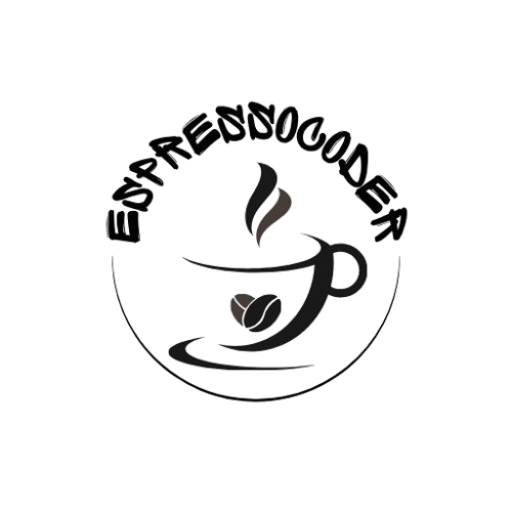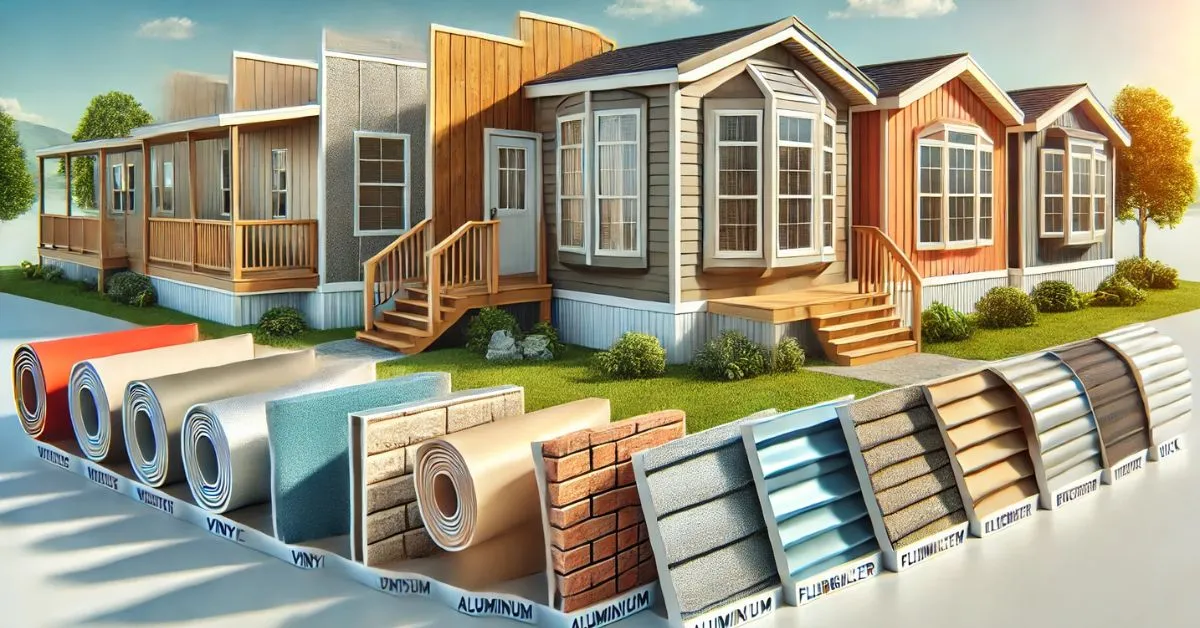When it comes to mobile homes, the exterior is just as important as the interior. The right materials not only boost curb appeal but also protect your home from the elements. Whether you’re looking to refresh your mobile home’s exterior or exploring available options for a new look, you’ve come to the right place. In this guide, we’ll explore top materials that suit different needs and styles, helping you make an informed decision that balances function, style, and budget.
Factors to Consider When Choosing Materials
Selecting the right exterior materials for your mobile home involves weighing several critical factors:
- Durability: Opt for materials that are known for their long lifespan and ability to withstand weather conditions such as rain, snow, wind, and UV exposure. Materials like brick and fiberglass are particularly durable and can offer decades of use with minimal wear.
- Maintenance: Understand the maintenance requirements of each material. Vinyl and aluminum generally require less maintenance, while wood will need regular upkeep such as sealing or painting.
- Energy Efficiency: Materials that offer good insulation properties can help in reducing energy bills by keeping your home warm in the winter and cool in the summer. Fiberglass and certain types of insulated vinyl can contribute to better energy efficiency.
- Aesthetics: Choose a material that complements your style. From the rustic charm of wood to the sleek look of vinyl or aluminum, consider what fits your personal taste and the overall appearance of your home.
- Budget: Be aware of both upfront and long-term costs. Vinyl and aluminum are typically more affordable, while brick and fiberglass come with higher initial expenses but may save money over time through reduced maintenance and energy costs.
Top Materials for Mobile Home Exteriors
Each material offers unique advantages and challenges that cater to different homeowner needs.
A. Vinyl
Details: Vinyl siding is one of the most widely used materials for mobile home exteriors, thanks to its affordability and versatile design options. It is made from polyvinyl chloride (PVC) and is known for being lightweight and easy to install. Vinyl is available in numerous textures and colors, allowing homeowners to find options that match their preferences. Modern vinyl siding has improved UV resistance, helping reduce fading over time.
Pros:
- Affordable: Vinyl is cost-effective compared to many other exterior materials.
- Low Maintenance: Requires only occasional cleaning with soap and water.
- Moisture Resistant: Prevents mold and rot, which can be beneficial in humid climates.
- Customizable: Offers a wide range of colors and styles.
Cons:
- Weather Impact: Prolonged exposure to extreme weather conditions can cause fading or warping.
- Insulation: Standard vinyl may lack sufficient insulation properties without added backing.
B. Wood
Details: Wood siding offers a classic, natural appearance that adds warmth and charm to any mobile home. It comes in various types, including cedar, pine, and redwood, each with unique grain patterns and colors. Wood is highly customizable since it can be painted or stained in virtually any shade. However, its susceptibility to rot, pests, and moisture makes it essential to maintain properly.
Pros:
- Aesthetic Appeal: Provides a timeless and elegant look.
- Customizable: Easily painted or stained to match any color scheme.
- Eco-Friendly: A sustainable option when sourced responsibly.
Cons:
- Maintenance-Intensive: Requires regular sealing, painting, or staining.
- Susceptibility to Damage: Prone to rot, insect damage, and weather-related wear.
- Higher Upfront Costs: Quality wood siding can be more expensive than synthetic alternatives.
C. Aluminum
Details: Aluminum siding is a lightweight, durable option that has been used for decades. It’s particularly popular for mobile homes in areas with moderate climates. Aluminum’s natural resistance to rust and corrosion makes it ideal for wet or coastal environments. It is also fire-resistant, which adds a layer of safety for homeowners. While it can dent under significant impact, newer versions come with reinforced properties.
Pros:
- Durability: Resistant to rust and corrosion, suitable for various climates.
- Low Maintenance: Can last for years with just basic cleaning.
- Fire-Resistant: Adds a safety benefit not found in some other materials.
- Lightweight: Easy to handle and install.
Cons:
- Insulation: Does not offer good thermal insulation without added backing.
- Prone to Dents: Susceptible to impact damage, which can be difficult to repair.
- Aesthetic Limitations: Though available in different finishes, it might lack the rich appearance of wood or the depth of vinyl.
D. Fiberglass
Details: Fiberglass siding is a modern solution that’s gaining popularity due to its combination of strength, lightweight properties, and aesthetic versatility. This material is often designed to mimic the appearance of wood or vinyl but offers superior resistance to warping, moisture, and other environmental stresses. Fiberglass also boasts excellent insulation properties, contributing to better energy efficiency.
Pros:
- Strong and Lightweight: Ideal for quick and easy installation.
- Energy-Efficient: Excellent insulating properties can help reduce energy costs.
- Moisture-Resistant: Does not warp or rot like wood.
Cons:
- Higher Cost: Initial installation can be more expensive compared to vinyl or aluminum.
- Availability: May not be as readily available in all areas compared to more traditional materials.
E. Brick
Details: Brick siding is a premium choice for homeowners seeking a combination of durability, elegance, and minimal maintenance. Brick offers unmatched longevity, often lasting over 50 years with proper care. It provides excellent insulation, which can help reduce heating and cooling costs. Brick’s natural resistance to weathering and fire makes it one of the safest and most robust options available, though it requires skilled installation.
Pros:
- Timeless Beauty: Adds a classic, sophisticated look.
- Exceptional Durability: Resistant to weather, pests, and fire.
- Low Maintenance: Requires only occasional cleaning.
Cons:
- High Initial Cost: Installation is labor-intensive and expensive.
- Limited Design Flexibility: Offers fewer customization options compared to materials like wood or vinyl.
Pros and Cons of Each Material
- Vinyl: Cost-effective and easy to maintain but may fade or warp under extreme conditions.
- Wood: Offers unparalleled natural beauty but requires significant maintenance.
- Aluminum: Durable, lightweight, and fire-resistant but can dent and lacks insulation.
- Fiberglass: Strong and energy-efficient, yet more expensive upfront.
- Brick: Provides unmatched durability and low maintenance but comes with high installation costs.
Maintenance and Longevity of Materials
The maintenance and longevity of the materials play a major role in determining your long-term investment:
- Vinyl: Generally lasts over 20 years with minimal maintenance.
- Wood: Requires regular upkeep but can last 30-40 years with proper care.
- Aluminum: Durable and long-lasting, with minimal annual cleaning needed.
- Fiberglass: Boasts a long lifespan, often exceeding 30 years with minimal maintenance.
- Brick: Can last over 50 years with very low maintenance required.
Cost Comparison of Materials
Budgeting for your exterior renovation is crucial:
- Vinyl: One of the most budget-friendly options, both for initial and maintenance costs.
- Wood: Typically higher upfront costs and continuous expenses for maintenance.
- Aluminum: Affordable but subject to price fluctuations.
- Fiberglass: Higher initial cost but offset by its long-term durability and energy savings.
- Brick: Most expensive to install but can be cost-effective over time due to its longevity and low maintenance.
Personal Style and Aesthetic Options
Your choice of material can greatly impact the look of your mobile home:
- Vinyl: Offers a modern, sleek look and comes in a variety of colors and textures.
- Wood: Creates a warm, rustic charm that suits classic or country-style aesthetics.
- Aluminum: Ideal for homeowners seeking a modern, industrial appearance.
- Fiberglass: Versatile and capable of mimicking other materials, allowing for creative design options.
- Brick: Perfect for a timeless, traditional aesthetic that never goes out of style.
Conclusion
Choosing the right exterior material for your mobile home involves evaluating multiple factors, including durability, aesthetics, maintenance, energy efficiency, and budget. Whether you prefer the affordability of vinyl, the timeless elegance of brick, or the customizable nature of wood, each option comes with its pros and cons. Weigh these considerations carefully to find the perfect material that enhances both your home’s appearance and longevity.

